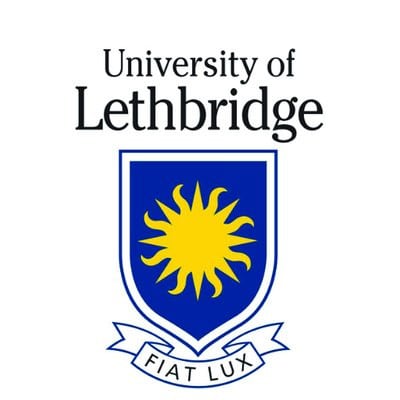
Master of Health Services Management
University of Lethbridge

Key Information
Campus location
Calgary, Canada
Languages
English
Study format
Blended
Duration
24 months
Pace
Part time
Tuition fees
CAD 2,531 / per course *
Application deadline
01 May 2024
Earliest start date
Sep 2024
* for International Students| 1086.40 CAD for Domestic Students| Additional fees may apply
Introduction
The Master of Health Services Management (MHSM) is jointly offered by the Dhillon School of Business and the Faculty of Health Sciences. Development of applied research, critical thinking and decision-making skills is embedded throughout the program, culminating with application in an integrated experience point project.
MHSM is a cohort-based, part-time program that is offered at the Calgary campus of the University of Lethbridge. The program is delivered in a compressed format using a combination of blended learning techniques, distance delivery, and residential (face-to-face) sessions. The delivery model allows students to attend graduate school while continuing to work. This is a particularly important feature for students who must maintain practice credentials.
A Graduate Certificate in Health Services Management (GCHSM) is available for students who wish to increase their knowledge level but may be unable to or are cautious about, committing to a complete master’s degree. A student who successfully completes the graduate certificate will receive course credit towards the master’s degree, making it easy to seamlessly ladder continuing education and professional development goals.
International Applicants: Due to the part-time nature of this program, please note that graduates will not be eligible to apply for a post-graduation work permit after completing this program.
Program Outcome
The program prepares students to be independent, strategic thinkers and collaborative colleagues. While the students’ knowledge and skillsets will be shaped within the context of health care, the learning outcomes will be transferable. More specifically, students will:
- Understand the context and complexity of health services and health management in the Canadian healthcare system
- Develop interdisciplinary, integrated knowledge of and experience in, the management of health services across five modules: Design; Financial Structure; Leading and Bridging; Political Environment; and Conceptualization
- Develop a foundational knowledge of the functional management areas of public and private healthcare environments
- Become effective managers of interdisciplinary environments in the healthcare sector
- Acquire enhanced meta-cognitive skills in numeracy, systems thinking, analytic thinking, critical thinking, synthesis, and decision-making
- Acquire effective team building and team cohesion skills
- Develop a foundational knowledge of a variety of healthcare systems outside Canada
- Develop knowledge and acquire competencies in applied research and decision-making
- Develop research skills to diagnose current challenges in a healthcare organization and construct a potential solution
- Organize and pursue an integrated project in a managerial setting in a healthcare organization
- Write and present an applied project to an acceptable scholarly level.
Career Opportunities
The overarching objective of the MHSM program is to prepare individuals to function effectively as managers and administrators in a wide range of public and private health care environments. Embedded in the program are global learning objectives which include developing and enhancing:
- Interdisciplinary knowledge
- Advanced numeracy skills
- Systems thinking
- Advanced critical thinking skills
- Advanced analytic and decision-making skills
- Global mindset
Curriculum
Coursework (30.0 credit hours)
Term one - Design Module (6.0 credit hours)
- Health Services Management 5100 – Organization Design (3.0 credit hours); and
- Health Services Management 5120 – Health Services Design (3.0 credit hours)
Term two - Financial Structures Module (6.0 credit hours)
- Health Services Management 5200 – Accounting in Health Services (3.0 credit hours); and
- Health Services Management 5220 – Finance in Health Services (3.0 credit hours)
Term three - Leading and Bridging Module (6.0 credit hours)
- Health Services Management 5300 – Leading People in Health Services (3.0 credit hours); and
- Health Services Management 5320 – Marketing in Health Services (3.0 credit hours)
Term four - Political Environment Module (6.0 credit hours)
- Health Services Management 5400 – Strategy, Power, and Politics (1.5 credit hours)
- Health Services Management 5420 – The Art of Negotiating Relations and Conflict Management (1.5 credit hours); and
- Health Services Management 5430 – Health Systems with a Global Perspective (3.0 credit hours)
Term five - Conceptualization Module (6.0 credit hours)
- Health Services Management 5500 – Leading Meaningful Change in Health Services (3.0 credit hours); and
- Health Services Management 5520 – Service Quality Management (3.0 credit hours)
Note: Courses taken for the GCHSM may be used towards an MHSM degree.
Health Services Management 6100 - Integrated Experience Point Project (6.0 credit hours)
The integrated experience requirement comprises a job shadowing experience in each of the five modules that are incorporated as part of one course in each module, as well as a culminating written project completed in Health Services Management 6100. The job shadowing consists of shadowing/observing an administrator or a manager, working on the related module topics in a health organization, and the student’s culminating written integrated project. The content of the courses is thus reinforced by the various field experiences. The written project may be reflective and theoretical or applied. It must be relevant to the practice of health services management and will demonstrate an in-depth knowledge and understanding of each of the five modules.
The project will require that students engage in research utilization (theoretical, empirical, or applied). It is a means for students to identify a challenge or opportunity in a health organization and integrate conceptual learning and critical thinking in a contextually meaningful fashion. The structure of the project is flexible in order to accommodate various creative endeavors and maybe work-based. Regulations, standards, and conventions for the written culminating project are found in the School of Graduate Studies Policies and Procedures manual available at /graduate studies.
Admissions
Gallery
Program Tuition Fee
Student Testimonials
English Language Requirements
Certify your English proficiency with the Duolingo English Test! The DET is a convenient, fast, and affordable online English test accepted by over 4,000 universities (like this one) around the world.